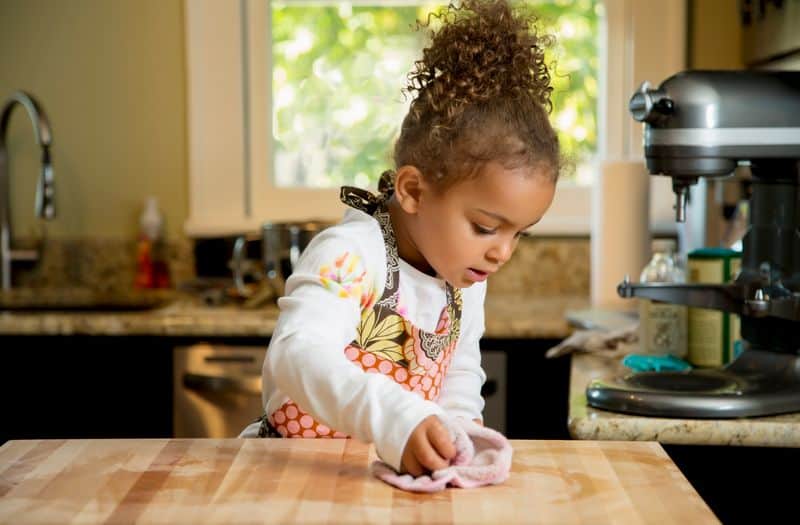Parenting is a journey filled with twists and turns, and every parent strives to raise independent, confident children. However, certain behaviors and practices can unintentionally hinder a child’s ability to stand on their own. Recognizing these red flags is crucial for fostering an environment where kids can thrive independently.
This blog post explores ten specific warning signs that may indicate your parenting methods are making it harder for your kids to develop autonomy. From overprotection to lack of boundaries, understanding these red flags can empower you to adjust your approach and support your child’s growth in a healthy, balanced way.
By becoming aware of these potential pitfalls, you can nurture resilience and self-reliance in your children, setting them up for success in their future endeavors.
1. Overprotection

Being overprotective might seem caring, but it can stifle a child’s ability to handle challenges. Parents who constantly shield their kids from failure prevent them from learning resilience. Allowing children to experience setbacks teaches them crucial problem-solving skills. Overprotection can manifest in various ways, such as micromanaging their school projects or preventing them from exploring new hobbies. This behavior sends a message that the world is too dangerous to face alone. It inhibits the development of confidence needed for independent decision-making. Letting go and allowing for minor failures can foster growth and self-reliance.
2. Lack of Boundaries

Boundaries provide children with a sense of security and structure. Without clear boundaries, children may struggle to understand limits and acceptable behavior. This lack of structure can lead to confusion and insecurity. Setting age-appropriate boundaries helps children feel safe and understand expectations. It also teaches them respect for others and their personal space. When boundaries are absent, children may act out to test limits. This behavior can hinder their ability to navigate social situations independently. Consistent boundaries encourage self-discipline and responsibility.
3. Inconsistent Discipline

Inconsistency in discipline confuses children and can undermine their ability to learn self-control. When rules are not applied consistently, kids may struggle to understand what’s expected. This inconsistency can lead to frustration and rebellion. Consistent discipline provides a clear framework for children to learn from their mistakes. It also helps them understand the consequences of their actions. By applying rules consistently, parents can foster a sense of fairness and trust. This approach encourages children to develop self-discipline and accountability.
4. Helicopter Parenting

Helicopter parenting involves hovering over children and controlling their every move. This over-involvement can hinder their ability to make independent decisions. By constantly intervening, parents prevent their kids from learning through experience. It’s essential for children to face challenges on their own to build confidence and autonomy. Helicopter parenting sends a message that children are incapable of handling life’s demands. Allowing kids to take charge of their responsibilities fosters independence. Encouraging self-sufficiency in daily tasks helps them develop problem-solving skills essential for adulthood.
5. Failure to Let Go

Holding on too tightly as children grow can impede their transition to independence. Parents who struggle to let go may inadvertently communicate a lack of trust in their child’s abilities. This behavior can lead to dependence and hinder the development of essential life skills. Trusting children to make their own decisions encourages growth and maturity. It’s important to provide support while allowing them space to explore. Letting go fosters confidence and prepares them for adult responsibilities. Gradually giving them more freedom helps them learn accountability.
6. Doing Too Much

Taking on too many responsibilities for children can stifle their growth. When parents do everything for their kids, they miss out on valuable learning experiences. Completing tasks like homework or chores on behalf of children can send a message that they aren’t capable. Encouraging kids to take on age-appropriate responsibilities promotes self-reliance. This delegation of tasks helps children develop essential life skills. It also boosts their confidence as they achieve goals independently. Allowing children to contribute teaches them the value of perseverance and hard work.
7. Discouraging Risk-Taking

Preventing children from taking risks can hinder their ability to handle challenges. Risk-taking is a crucial part of learning and growth. By discouraging this behavior, parents may unintentionally limit their child’s development. Allowing kids to take calculated risks helps them develop resilience and problem-solving skills. Parents should encourage exploration within safe boundaries. Supporting children in risk-taking fosters creativity and confidence. It teaches them to assess situations and make informed decisions. Emphasizing safety while allowing exploration can strike a healthy balance.
8. Not Encouraging Independence

Failing to encourage independence can lead to dependency. Parents who do not promote self-reliance may find their children lack confidence in their abilities. Encouraging independence involves teaching kids to handle age-appropriate tasks. By allowing them to make choices, parents empower children to take charge of their lives. This approach fosters decision-making skills and problem-solving abilities. Supporting independence builds self-esteem and prepares children for future challenges. Providing opportunities for autonomy helps children develop a sense of responsibility and ownership.
9. Constant Criticism

Constant criticism can erode a child’s confidence and self-esteem. When parents focus on faults rather than achievements, children may feel inadequate. This negative feedback can discourage them from trying new things or taking initiative. Constructive feedback is vital for growth, but it’s important to balance it with encouragement. Positive reinforcement builds confidence and fosters a growth mindset. By celebrating successes, parents can motivate their children to improve. This supportive environment encourages risk-taking and resilience. A balanced approach to feedback promotes healthy self-esteem.
10. Overemphasis on Achievement

Placing too much emphasis on achievement can create pressure and anxiety in children. When success is prioritized over effort, kids may fear failure. This pressure can stifle exploration and creativity. Encouraging a love for learning rather than just achieving fosters a growth mindset. Praising effort and persistence rather than just results helps children appreciate the learning process. This approach reduces anxiety and builds resilience. It encourages a balanced view of success, promoting well-rounded development. Supporting a child’s interests beyond academics nurtures creativity and joy.

Well, hello there!
My name is Jennifer. Besides being an orthodontist, I am a mother to 3 playful boys. In this motherhood journey, I can say I will never know everything. That’s why I always strive to read a lot, and that’s why I started writing about all the smithereens I came across so that you can have everything in one place! Enjoy and stay positive; you’ve got this!

